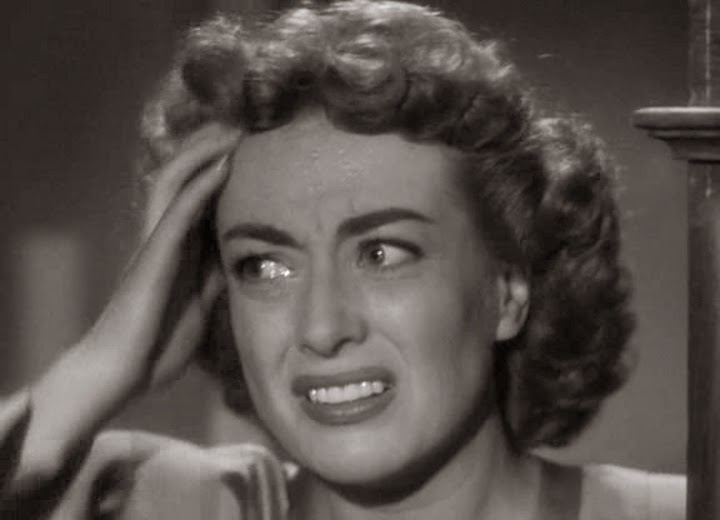Obviously, Susan Sontag's "Notes on Camp" was mentioned, and is pretty much the epitomal text about camp, more recently is Bruce La Bruce's "Notes on Camp/Anti Camp"(which they didn't reference at all, but here it is out of interest because it's very current and good.)
"Classic Gay Camp:
Carmen Miranda
Mae West
Joan Crawford
Bette Davis
Whatever Happened To Baby Jane
Art Nouveau
Art Deco
The Catholic Church
George Kuchar
Franklyn Pangborn
Edward Everett Horton
Paul Lynde
Charles Nelson Reilly
The Boys in the Band
The Killing of Sister George
John Waters movies
Divine
Mario Montez
Holly Woodlawn
Candy Darling
Jackie Curtis
Liberace
Mae West
Joan Crawford
Bette Davis
Whatever Happened To Baby Jane
Art Nouveau
Art Deco
The Catholic Church
George Kuchar
Franklyn Pangborn
Edward Everett Horton
Paul Lynde
Charles Nelson Reilly
The Boys in the Band
The Killing of Sister George
John Waters movies
Divine
Mario Montez
Holly Woodlawn
Candy Darling
Jackie Curtis
Liberace
Bad Gay Camp:
Will and Grace
Queer Eye for the Straight Guy
Misogynist Drag Queens
Neil Patrick Harris
Contemporary Broadway Musicals
Certain Ken Russell Films (The Boy Friend)
Perez Hilton
Adam Lambert
Liberace
Beyonce
Lady Gaga
Queer Eye for the Straight Guy
Misogynist Drag Queens
Neil Patrick Harris
Contemporary Broadway Musicals
Certain Ken Russell Films (The Boy Friend)
Perez Hilton
Adam Lambert
Liberace
Beyonce
Lady Gaga
Good Straight Camp:
Woody Allen’s dramatic films (Interiors, September)
Certain Robert Altman films (That Cold Day in the Park, Images, 3 Women)
Certain John Cassavetes films (The Killing of a Chinese Bookie, Minnie and Moscowitz)
Certain Robert Altman films (That Cold Day in the Park, Images, 3 Women)
Certain John Cassavetes films (The Killing of a Chinese Bookie, Minnie and Moscowitz)
Bad Straight Camp:
Stanley Tucci in The Devil Wears Prada and The Hunger GamesTwilight
Black SwanIl DivoStar WarsAdam Sandler movies
Che Guevera
Damien Hirst
Tim Burton movies (except Pee Wee’s Big Adventure and Ed Wood)
Arnold Schwarzenegger
Jeff Koons
Tropic ThunderBenny Hill
Beyonce
Lady Gaga Baz Luhrmann
Black SwanIl DivoStar WarsAdam Sandler movies
Che Guevera
Damien Hirst
Tim Burton movies (except Pee Wee’s Big Adventure and Ed Wood)
Arnold Schwarzenegger
Jeff Koons
Tropic ThunderBenny Hill
Beyonce
Lady Gaga Baz Luhrmann
High Camp:
Oscar Wilde
Jean Cocteau
Jean Cocteau
Low Camp:
Vaudeville
Burlesque
Bawdy humour
Moms Mabley
Sophie Tucker
Better Midler’s bathhouse routines
Burlesque
Bawdy humour
Moms Mabley
Sophie Tucker
Better Midler’s bathhouse routines
Ultra Camp:
Mae West performing "Love Will Keep Us Together" in SextetElizabeth Taylor and Noel Coward in Boom!
Myra Breckenridge
Valley of the Dolls
Myra Breckenridge
Valley of the Dolls
Bad Ultra Camp:
Liza Minnelli performing "Put A Ring On It" in Sex and the City 2
Quasi-Camp
Jerry Lewis’ sixties movies (The Ladies Man, The Patsy, The Big Mouth)
Midnight CowboyLooking For Mr. GoodbarLuna
Cruising
Midnight CowboyLooking For Mr. GoodbarLuna
Cruising
Subversive Camp:
Rock Hudson/Doris Day movies
Roddy McDowell’s Tam LinBrett Anderson of Suede
Pee Wee Herman
Roddy McDowell’s Tam LinBrett Anderson of Suede
Pee Wee Herman
Reactionary Camp:
Tyler Perry
Eddie Murphy
Heavy Metal
Eddie Murphy
Heavy Metal
Liberal Camp:
Dr. Ruth
Rev. Al Sharpton
Shepard Fairey’s Obama "Hope" poster
Rev. Al Sharpton
Shepard Fairey’s Obama "Hope" poster
Conservative Camp:
Kirk Cameron
Sarah Palin
Newt Gingrich
Mitt Romney
Ann Coulter
Fox News
The Iron Lady
Sarah Palin
Newt Gingrich
Mitt Romney
Ann Coulter
Fox News
The Iron Lady
Intentional Camp:
The Shining
Casino Royale with Daniel Craig
Green Acres (TV Show)
Casino Royale with Daniel Craig
Green Acres (TV Show)
Unintentional Camp:
Lost in Space (TV Show)
Eyes Wide Shut
J. Edgar
Valley of the Dolls
The Iron Lady
Eyes Wide Shut
J. Edgar
Valley of the Dolls
The Iron Lady
Good Intentional Straight Camp:
Russ Meyer movies
Carry On movies"
Carry On movies"
The rest of which can be read here (http://natbrut.com/notes-on-camp-labruce/)
Interesting things were discussed at the beginning of the talk, this is what I got from it:
The whole point of camp is to dethrone the serious, and the suggestion that one can be serious about the frivolous and frivolous about the seriousness. Camp is the answer to the problem of "Straight Seriousness".
Camp was born in the 60s when Pop Culture was in its infancy, since then we have seen these changes in our sociology. Political speech is seen as more multifaceted and we no longer take it at face value. We don't believe so ardently in ideology, and the way we consume culture has changed, with "trash taste", disposable culture, predominating. Additionally, the position of LGBT politics has taken a massive stride.
In the infancy of camp, as an opposition to 'straight seriousness' it was seen as a homosexual ticket to social inclusion within hetronormativity. Camp is sustainable because of necessity.
For me, I found the talk to focus too much on 'neo camp' which is more estranged from political ideology, because of a lack of 'urgency', it almost rejects camp history and identifies itself as more closeted, a code in a cultural language liked to victorian euphemism.

No comments:
Post a Comment